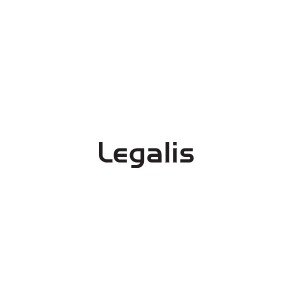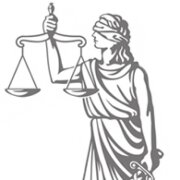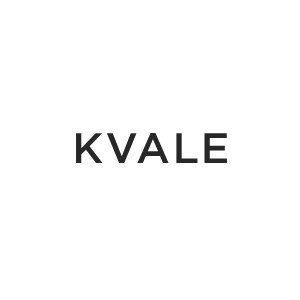Best Water Law Lawyers in Norway
Share your needs with us, get contacted by law firms.
Free. Takes 2 min.
Or refine your search by selecting a city:
List of the best lawyers in Norway
About Water Law in Norway
Water Law in Norway governs the ownership, allocation, use, protection, and management of water resources, including surface water, groundwater, rivers, lakes, and coastal zones. The legal framework emphasizes sustainable management, access for public use, and environmental protection. Water resources are considered public property, but private ownership and rights to use water for specific purposes are also recognized and regulated. The country's Water Law reflects a balance between public interest, environmental concerns, and private rights, particularly concerning hydropower, agriculture, fisheries, and recreational use.
Why You May Need a Lawyer
There are several situations in which individuals, businesses, or organizations may need legal assistance in Water Law in Norway. Some common examples include:
- Seeking permits for construction or land development near water bodies
- Disputes over water rights or boundaries between properties
- Environmental impact assessments for projects affecting water resources
- Conflicts involving water use for agriculture, industry, or hydropower
- Legal actions related to pollution, contamination, or damage to water bodies
- Regulatory compliance for companies using significant water resources
- Protection of fishing rights and aquaculture zones
- Navigating local and national government requirements for water management
Legal expertise is particularly valuable because Norwegian Water Law involves multiple regulations, governmental bodies, and can include complex scientific and environmental considerations.
Local Laws Overview
Norway's regulation of water resources is anchored in several key acts, most notably the Water Resources Act (Vannressursloven) and the Pollution Control Act (Forurensningsloven). The Water Resources Act sets out the principles for public ownership of water, water rights for private parties, use restrictions, and the duty to maintain watercourses to avoid environmental harm. The Pollution Control Act regulates emissions and pollution to prevent water contamination.
Hydropower production is a significant sector and is regulated by the Watercourse Regulation Act and the Industrial Licensing Act. Water use for drinking, agriculture, industry, fisheries, recreation, and navigation all have specific rules and permitting systems. Additionally, Norway follows the European Union's Water Framework Directive through the Norwegian Water Regulation, setting standards for water quality and integrated river basin management.
Municipalities are responsible for local water supply, wastewater treatment, and environmental protection, often requiring permits and public hearings. There is also a strong emphasis on the "polluter pays" principle and public participation.
Frequently Asked Questions
What is considered a water right in Norway?
A water right is the legal entitlement to use water from a watercourse, groundwater, or lake for a specific purpose, such as irrigation, hydropower, or private consumption. Rights can be granted by law, contract, or long-standing usage.
Do I need a permit to build near or on water?
Yes, construction or alteration of land near water bodies typically requires a permit from municipal, regional, or national authorities, depending on the project's size and potential environmental impact.
Who owns water resources in Norway?
Most water resources in Norway are considered public property, but private ownership can exist, especially for smaller watercourses. Ownership does not necessarily grant unlimited use or the right to alter water bodies.
What are my responsibilities if I own land next to a river or lake?
Landowners have a duty to avoid environmental harm, maintain banks, and ensure public access where legally required. Significant changes to the watercourse or its banks often require official permits.
How is water pollution regulated?
The Pollution Control Act prohibits harmful discharges into water bodies. Companies and individuals must obtain permits for activities that might pollute water and are liable for cleaning up any contamination.
Is public access to lakes and rivers guaranteed?
Yes, Norway's "allemannsretten" (right of public access) allows public access to uncultivated land, including lakes and rivers, for recreation, as long as it does not cause damage or significant disturbance.
How are water disputes resolved?
Disputes over water use, rights, or damage are typically resolved through administrative proceedings, mediation, or the court system. Specialized lawyers can help assess rights and obligations and represent clients.
Are there special rules for hydropower?
Hydropower is highly regulated. Building or altering hydropower facilities requires extensive licensing, environmental assessments, and public consultations. Rules consider environmental, societal, and economic interests.
What is the role of municipalities in water management?
Municipalities are responsible for water supply, sewage, flood protection, and local environmental safeguards. They grant many construction permits and enforce local water regulations.
What should I do if I discover pollution or damage to a watercourse?
Report the issue to the local municipality or the Norwegian Environment Agency. It is important to act quickly, as there may be legal obligations to stop or remediate pollution.
Additional Resources
If you need more information or assistance with Water Law in Norway, the following organizations and resources can be helpful:
- Norwegian Water Resources and Energy Directorate (NVE)
- Norwegian Environment Agency (Miljødirektoratet)
- Municipal environmental departments
- County Governor (Fylkesmannen)
- Local law firms specializing in environmental and property law
- Norwegian Association for Water Law
- Official Norwegian legal database (Lover.no or Lovdata)
Next Steps
If you think you need legal assistance regarding Water Law in Norway, consider taking the following steps:
- Gather all relevant documents, permits, and correspondence related to your case
- List your questions and concerns regarding your water rights, obligations, or projects
- Identify whether your matter involves public authorities, private parties, or both
- Contact a qualified Norwegian lawyer with experience in Water Law or environmental law
- If the issue concerns a permit or a conflict, be prepared with detailed information about your property, planned activities, and any communications with authorities or neighbors
- Consider reaching out to the local municipality or the Norwegian Water Resources and Energy Directorate for initial guidance
Taking early and informed action can help you understand your rights and obligations, avoid costly mistakes, and ensure compliance with Norway's comprehensive water regulations.
Lawzana helps you find the best lawyers and law firms in Norway through a curated and pre-screened list of qualified legal professionals. Our platform offers rankings and detailed profiles of attorneys and law firms, allowing you to compare based on practice areas, including Water Law, experience, and client feedback.
Each profile includes a description of the firm's areas of practice, client reviews, team members and partners, year of establishment, spoken languages, office locations, contact information, social media presence, and any published articles or resources. Most firms on our platform speak English and are experienced in both local and international legal matters.
Get a quote from top-rated law firms in Norway — quickly, securely, and without unnecessary hassle.
Disclaimer:
The information provided on this page is for general informational purposes only and does not constitute legal advice. While we strive to ensure the accuracy and relevance of the content, legal information may change over time, and interpretations of the law can vary. You should always consult with a qualified legal professional for advice specific to your situation.
We disclaim all liability for actions taken or not taken based on the content of this page. If you believe any information is incorrect or outdated, please contact us, and we will review and update it where appropriate.
Browse water law law firms by city in Norway
Refine your search by selecting a city.















